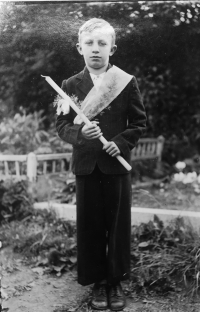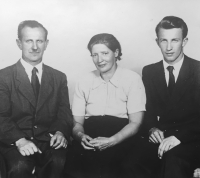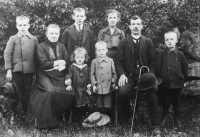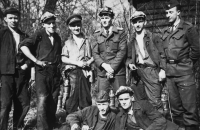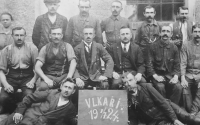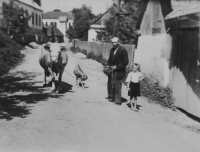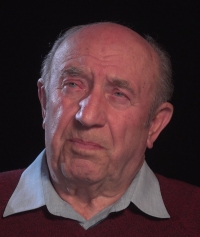The Germans started to pile everything up. Towards evening, the fires blazed

Download image
Petr Henzl was born on 21 August 1935 in Vítějeves into a Czech-German family. He lived through the Second World War as a boy and vividly remembers the war events. His father worked at the Löw-Beer factory in nearby Brno, where Oskar Schindler employed Jewish prisoners. Like many people in the area, his father secretly brought them bread and medicine and helped them to survive the war. At the end of the war, German troops were retreating through his home village, and it was not long before the entire village was razed to the ground. The spring and summer of 1945 were spent among the ubiquitous remnants of German equipment. All the local boys collected guns and bullets, often with tragic consequences in the form of injury or death. After the war, his German grandmother was deported with her entire family, although she never posed as a German and always had good relations with the Czechs. He spent the war in the mines in Karviná and then began working in textile factories as a machine operator. First in Brno, then in Svitavy and finally in Brno, right on the Löw-Beer factory premises. Thus the Henzel family circle was closed. Petr Henzl made foreign excursions to the factory after the revolution and now spends his retirement years in Brno with his family.
